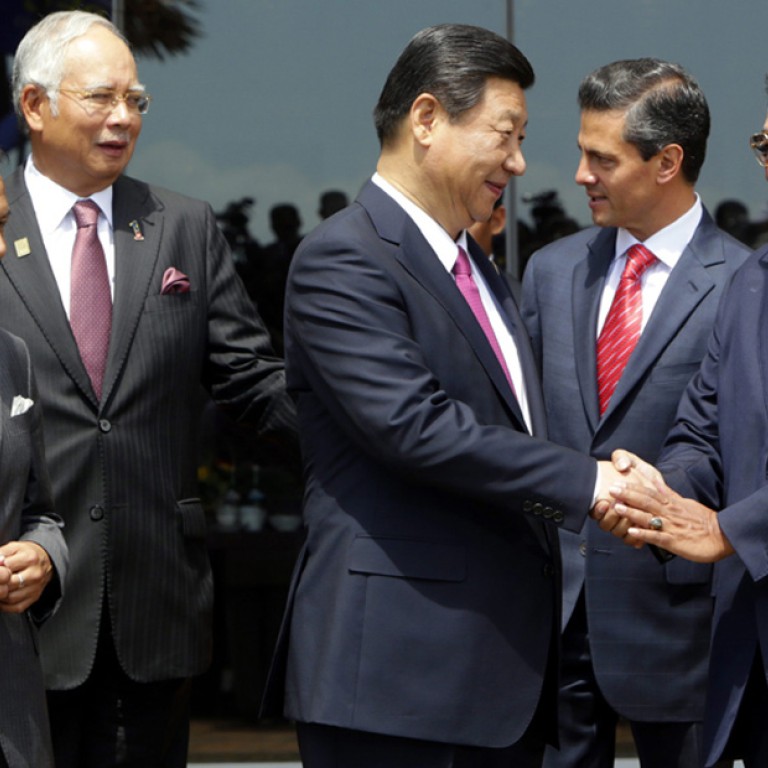
US 'tilting' away from Asian allies
Philip Bowring says domestic squabbles and a hapless president have dented America's standing both in Asia and elsewhere, in a year of foreign policy disasters
Last year, China's foreign relations sustained huge setbacks, especially in Asia, with its aggressive stances on the Senkaku/Diaoyu Islands, the South China Sea, its border with India and lesser issues. It seemed that the domestic politics of leadership transition was taking precedence over sustaining the "peaceful" description of China's rise. Instead, it seemed to encourage America's "tilt" towards Asia and justify it in the eyes of many Asian partners.
This year, however, will go down as the year when US domestic politics undermined its own status not just in Asia but in much of the world, as a result both of the behaviour of its Congress and the inability of President Barack Obama to place US global interests ahead of short-term political considerations.
In its own tiny way, Hong Kong has had a similar experience this year to the US, and to China last year. Its grotesque behaviour in the Manila hostage case was driven entirely by local politics and prejudices, in the process damaging its reputation for being a fair-minded and open Asian city.
For the US in Asia, Obama's failure to attend the Asia-Pacific Economic Co-operation forum and related meetings in Asia had a huge symbolic impact. In the hothouse of Washington, loss of attendance at one of many summit meetings may seem trivial. Surely, it is argued, it would be worse if budgets were not passed or US debt went into technical default because of divisions in Congress?
But that misses the point of the true role of the president, which is to try to rise above such squabbles and speak and act for America's bigger interests. It is not even clear that the US public, which has a low opinion of its Congress, would have criticised Obama if he had taken off for Asia instead of spending his days on the phone to congressmen.
His absence was all the more evident given China's change of tone, at least towards the Association of Southeast Asian Nations (excluding the Philippines) and India, and the flurry of visits by sweet-talking diplomats in the lead-up to President Xi Jinping's attendance at the Brunei and Bali meetings. The friendlier face of China, as represented by the smiling Xi, would not have been so effective had Obama been a counter-attraction.
Nor was this just about appearances. A cornerstone of US policy in the region is its Trans-Pacific Partnership, partly a counterweight to China's regional trade agreements. But the trade partnership's prospects have been slowed or at least diluted by China's proactive moves in East Asia.
The weakness of US influence has even been seen in the petty quarrels of two of its major allies, Japan and South Korea, as the latter's president, Park Geun-hye, seeks to compensate for the role of her father, the late president Park Chung-hee, as an officer in the Japanese imperial army by stirring ill feeling towards Japan and encouraging relations with China. This does not help the US, to which they both look as their principal ally.
The Edward Snowden affair has also left a sour taste in the mouths of America's global friends. The brutal fact is that almost all America's friends were disturbed by the sheer extent of the snooping involved. It fits ill with America's image to be found doing all the things it accuses China and others of doing. Again, domestic politics seems to have made the US incapable of recognising the impact of its actions on its friends.
The Germans in particular had every right to be outraged by the US need to listen in to Chancellor Angela Merkel's phone calls. What could have been gained compared with the cost of discovery? The system is no longer about US national security. It is about an out-of-control system that offends almost all US allies and shows Obama as a captive of the system.
US influence in the Middle East has also been seen in decline. It is hardly Obama's fault that revolutions against long-established authoritarian regimes in Egypt and Syria have not turned out as hoped. They have merely exposed the ideological, religious and other divides in these societies which had long been suppressed by the former rulers. The worst that could be said of US attitudes and policies was that there, as in Iraq and Afghanistan, they showed a naive belief in the ballot box as a solution to political struggles in countries without the institutions and rules engagement to achieve the compromises necessary for democratic government.
The Obama administration could yet end the year on a better note if it could reach agreement with Iran. The deal, which seemed so close a week ago, is now in jeopardy. The precise reasons are unclear. But there seems little doubt that Secretary of State John Kerry and Obama have again been under the influence of America's least desirable allies, Israel and Saudi Arabia, one an expansionist, race-based state in breach of innumerable international obligations, the other an oppressive state with medieval laws and fount of oil-financed global dissemination of religious fanaticism.
Again, one wonders whether attitudes of an ignorant US Congress and a public long fed fantasies of Middle East history are undermining US foreign policy and America's broader reputation as a friend and ally.

